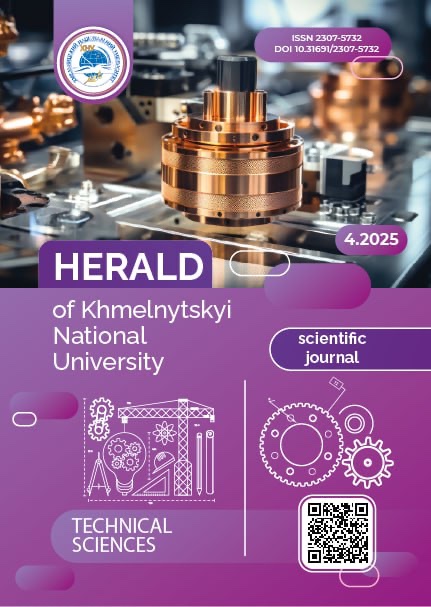APPLICATION OF POLYVINYL ALCOHOL TO IMPROVE THE FILTRATION PROPERTIES OF CELLULOSE MEMBRANES
DOI:
https://doi.org/10.31891/2307-5732-2025-355-13Keywords:
polyvinyl alcohol, organosolvent cellulose, fiber modification, mechanical properties, selectivity, productivityAbstract
Pollution of water resources by organic, biological, and inorganic substances is one of the most pressing environmental issues of today. Ultrafiltration membranes ensure the effective removal of viruses, bacteria, colloidal particles, and macromolecules, and play a key role in water purification technologies. However, the use of synthetic polymeric materials in membrane production poses a disposal problem due to their non biodegradable nature.
This study investigates the potential use of a cellulose-based filtration material derived from annual plants, specifically Miscanthus giganteus stems. The cellulose was obtained via an oxidative organosolv delignification method using hydrogen peroxide and glacial acetic acid. An environmentally friendly reagent citric acid was employed as a catalyst. Prior to membrane formation, the cellulose fibers were treated with an amination mixture containing epichlorohydrin and triethanolamine in a 1:1 ratio. Various amounts of polyvinyl alcohol, ranging from 10% to 40% by the weight of absolutely dry fiber, were added to the cellulose pulp, which enabled the formation of a stable hydrophilic matrix with enhanced mechanical properties. The study examines the effect of polyvinyl alcohol content on the physicomechanical characteristics of the membranes, such as bursting resistance, breaking force, and wet strength. Optimization of technological parameters was carried out based on a full factorial experimental design.
The research results showed that the optimal polyvinyl alcohol content is 20% of the absolutely dry fiber weight, which ensures a balance between coloration selectivity and productivity filtration process. Thus, the use of polyvinyl alcohol for the modification of cellulose membranes derived from organosolv miscanthus cellulose contributes to enhancing their efficiency and environmental sustainability in water treatment technologies.
Downloads
Published
Issue
Section
License
Copyright (c) 2025 ІРИНА ТРЕМБУС, АННА ГАПОНЮК (Автор)

This work is licensed under a Creative Commons Attribution 4.0 International License.

